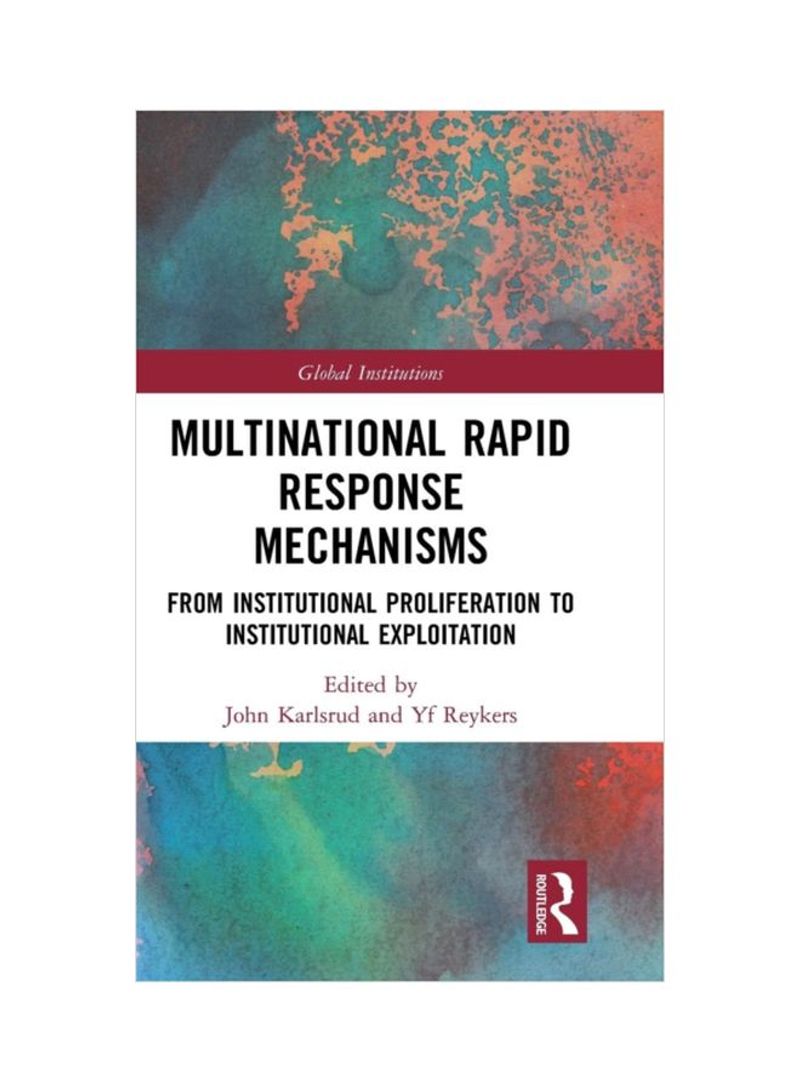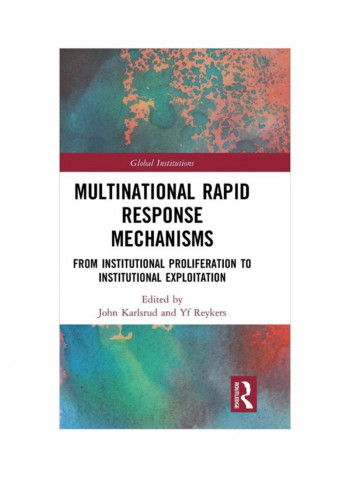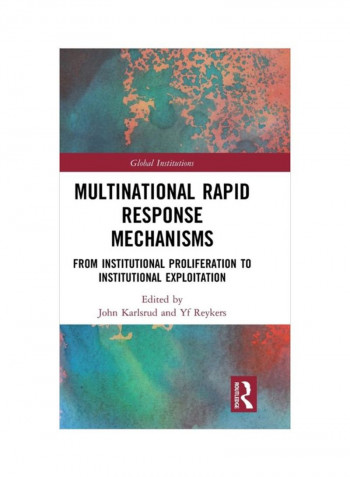Multinational Rapid Response Mechanisms: From Institutional Proliferation To Institutional Exploitation Hardcover
Recommend
Sort by
Rating
Date
Specifications
Grade
New
Book Description
The track record of military rapid response mechanisms, troops on standby, ready to be deployed to a crisis within a short time frame by intergovernmental organizations, remains disappointing. Yet, many of the obstacles to multinational actors launching a rapid and effective military response in times of crisis are largely similar. This book is the first comprehensive and comparative contribution to explore and identify the key factors that hamper and enable the development and deployment of multinational rapid response mechanisms. Examining lessons from deployments by the au, the eu, nato, and the un in the central african republic, mali, somalia and counter-piracy in the horn of africa, the contributors focus upon the following questions: was there a rapid response to the crises? By whom? If not, what were the major obstacles to rapid response? Did inter-organizational competition hinder responsiveness? Or did cooperation facilitate responsiveness? Bringing together leading scholars working in this area offers a unique opportunity to analyze and develop lessons for policy-makers and for theorists of inter-organizational relations. This work will be of interest to scholars and students of peacebuilding, peacekeeping, legitimacy and international relations.
ISBN-10
1138543985
ISBN-13
9781138543980
Language
English
Publisher
Taylor & Francis Ltd
Publication Date
28 Jan 2019
Number of Pages
194
Editor 1
John Karlsrud
Editor 2
Yf Reykers
Editorial Review
"This Edited Volume is One of The Very Few Publications Which Offers a Cross-Institutional Perspective on Rapid Response Instruments Which is Largely Missing in The literature. The Book Critically Examines The Many Limitations Rapid Response is Facing in Practice Without Forgetting Its Importance For More Effective International Crisis response. It is a Book Which Rightly Deserves a Place in The Bookshelf of Anyone Interested in The Intricacies of International Crisis response." - Malte Brosig, University of Witwatersrand, South Africa "This Book Provides a Remarkably Comprehensive Overview of Rapid Response Mechanisms, Earning a Place on The Bookshelf of Anybody Interested in Contemporary Peace operations. The First Chapters Provide Detailed, up-to-Date Analyses of The Trajectory of Policy Initiatives in The African Union, The European Union, Nato, And The UN, Similarly Structured to Facilitate comparison. Critically, However, The Book Also Highlights That These Organizations Typically Interact - Not Always Positively, And Sometimes in "dysfunctional competition" - in Responding to Contemporary Crises, And That ad Hoc Arrangements Have Been Common Alternatives to The Effective Deployment of Formal Rapid Response mechanisms." - Katharina Coleman, University of British Columbia, Canada "Multilateral Rapid Military Responses Are Often Called For in Conflict Situations Around The Globe, Yet Always Prove problematic. They Require Coordination of a Considerable Number of Political And Military Actors at Various Levels, Including Interplay Among International Organizations Such as The UN, Nato, The European Union And The African Union. By Combining a Common Inter-Organizational Approach With a Wide Range of in-Depth Case Studies, The Contributors to This Pioneering Volume Manage to Uncover Factors That Hamper as Well as Facilitate Rapid Multilateral interventions. A Veritable Tour de force!" - Christer Joensson, Lund University, Sweden "Among The Key Questions For Any Military Response are: What Goes Where, How Big, And How Fast? Speed Saves Lives When Responding to crises. Curiously, Rigorous Studies of Rapid Response Mechanisms Are limited. This Volume Fills The gap. It Provides a Comprehensive, Comparative Approach to The Topic From a List of Top Scholars in The field. Experts, Practitioners, And Students Alike Should Read it. It is Destined to be The Key Text on The Topic For Some Time to come." - Adam Lupel, International Peace Institute, Usa



